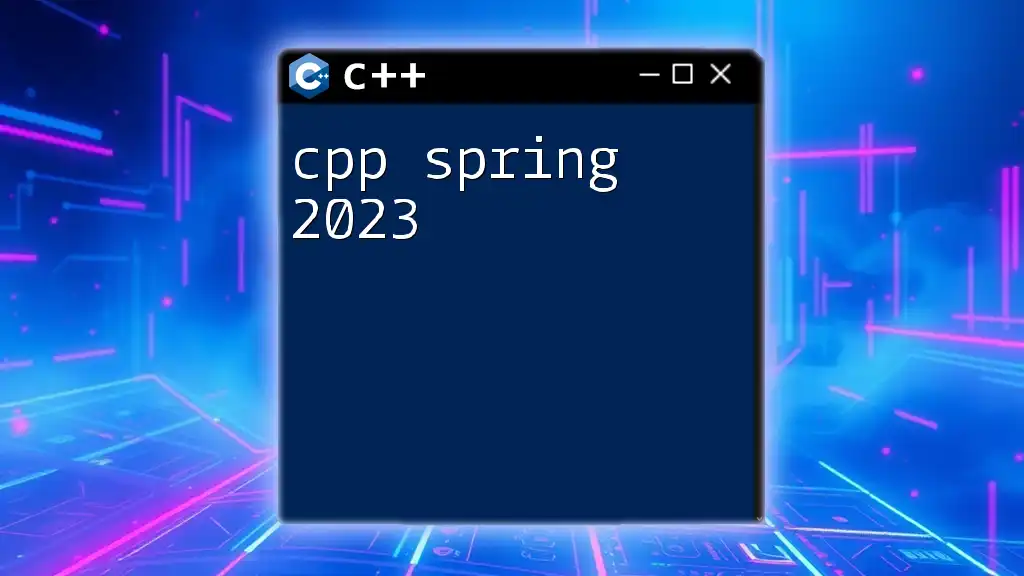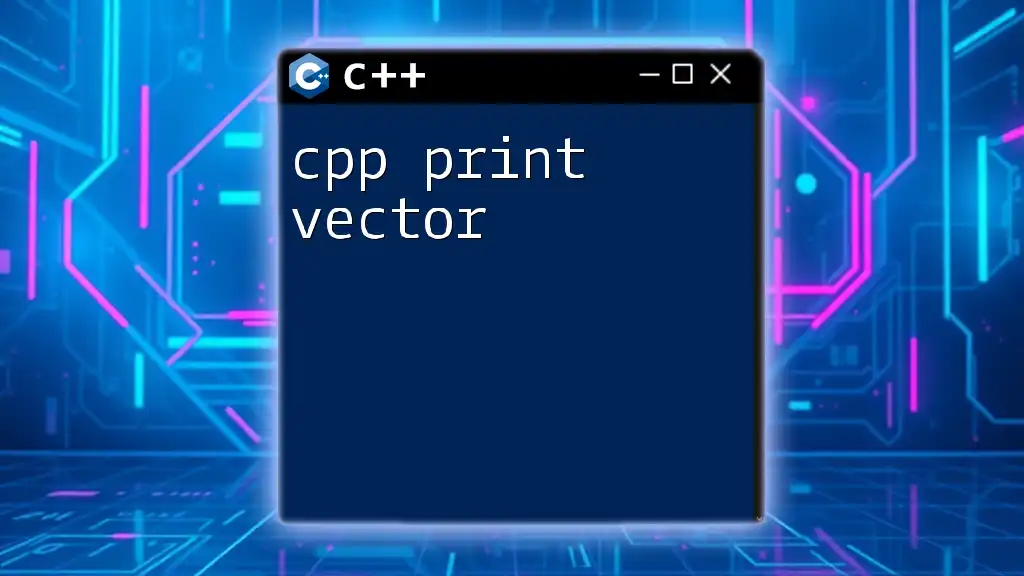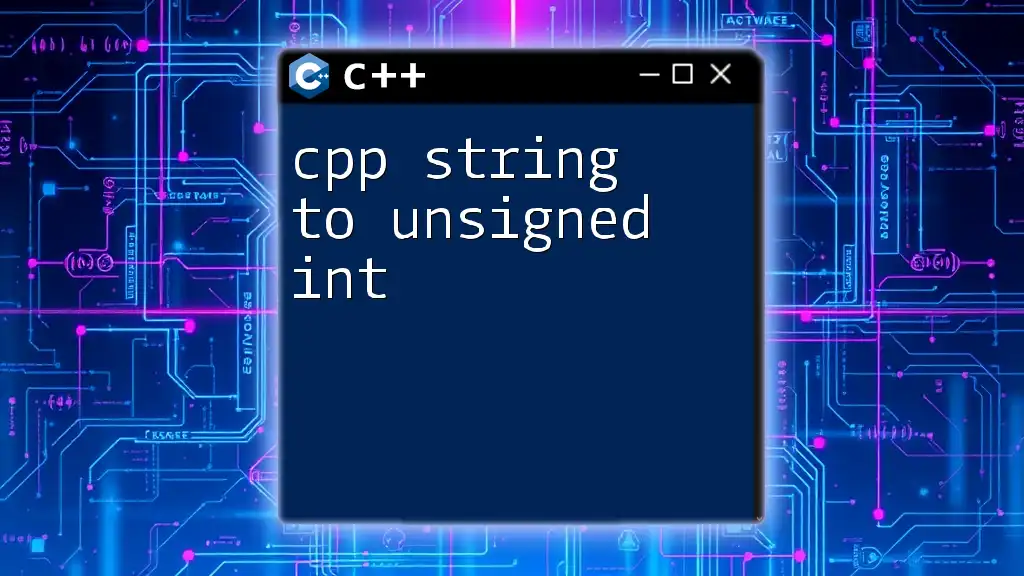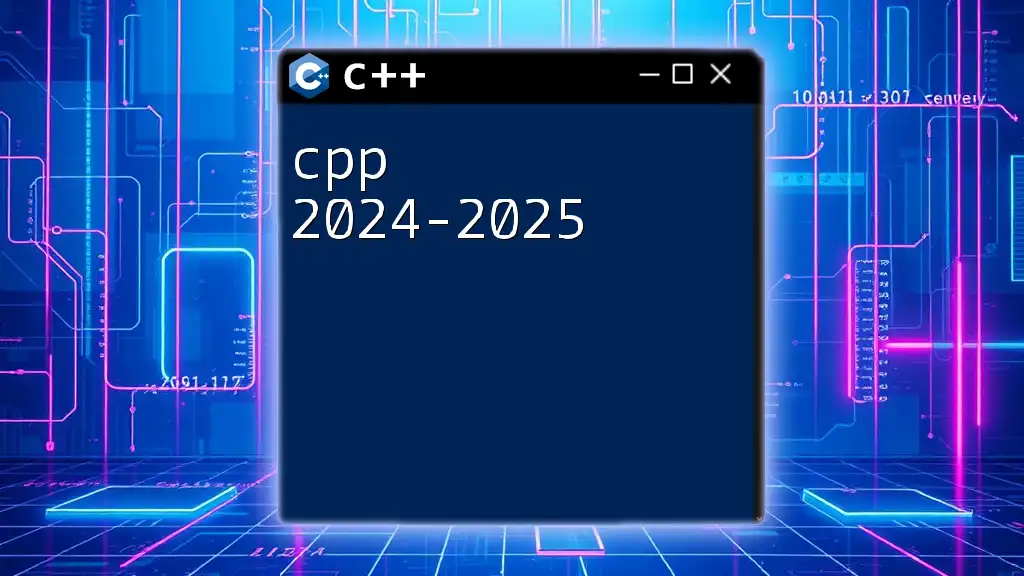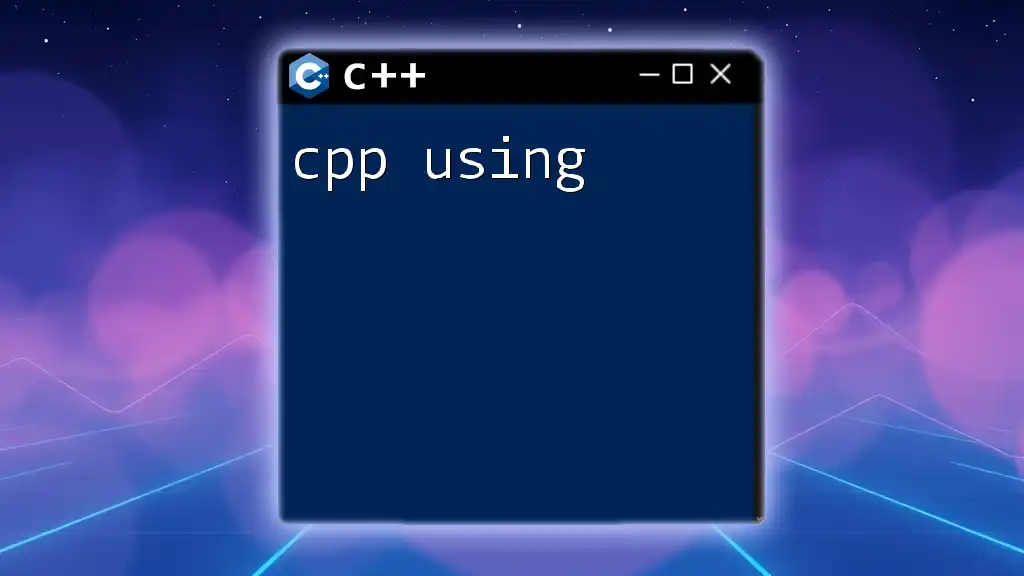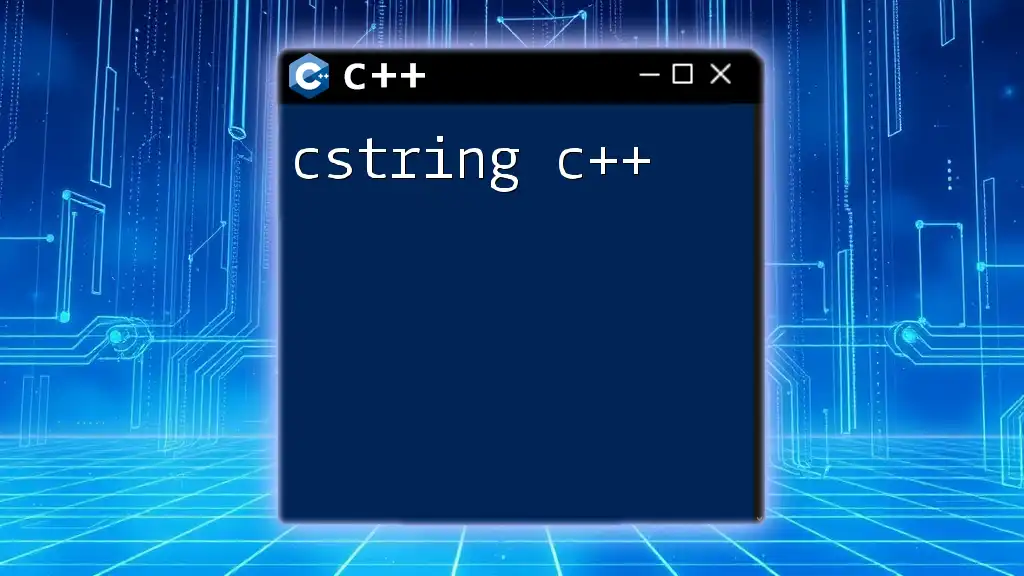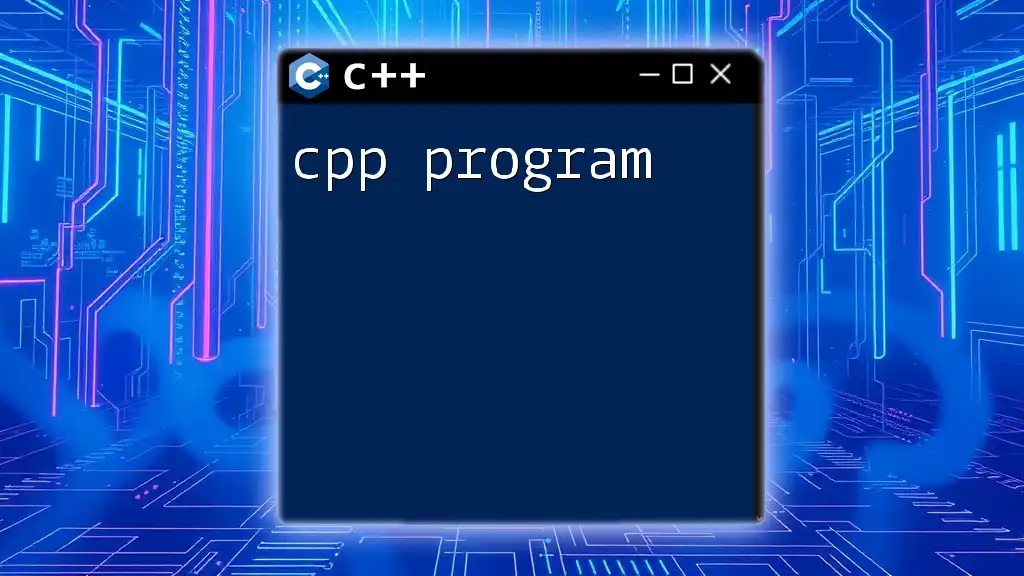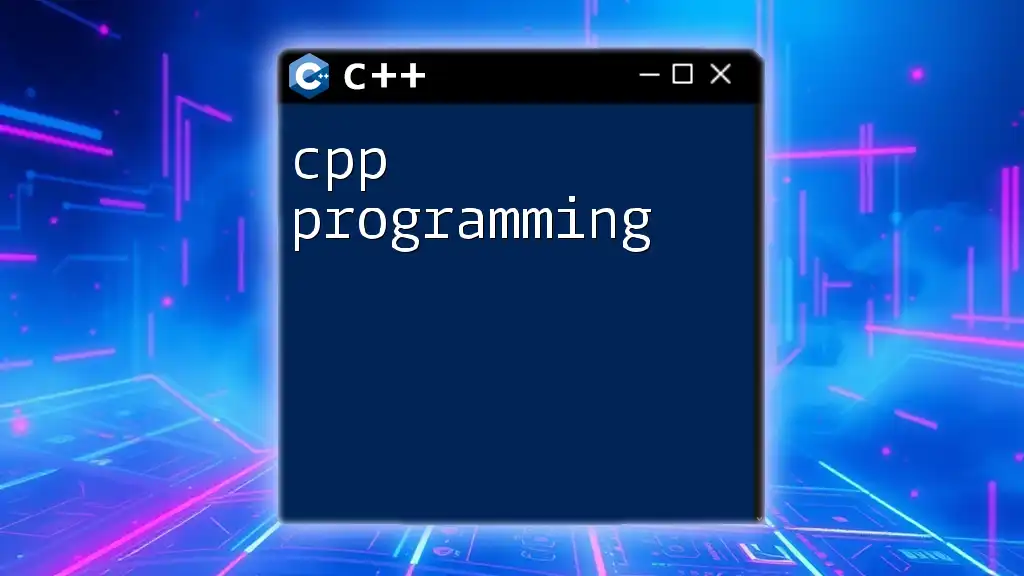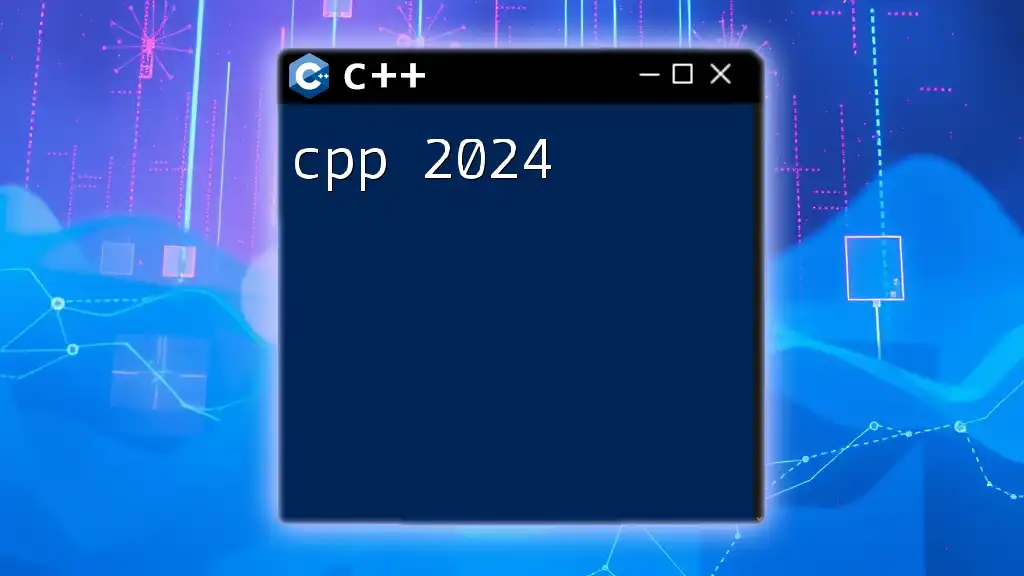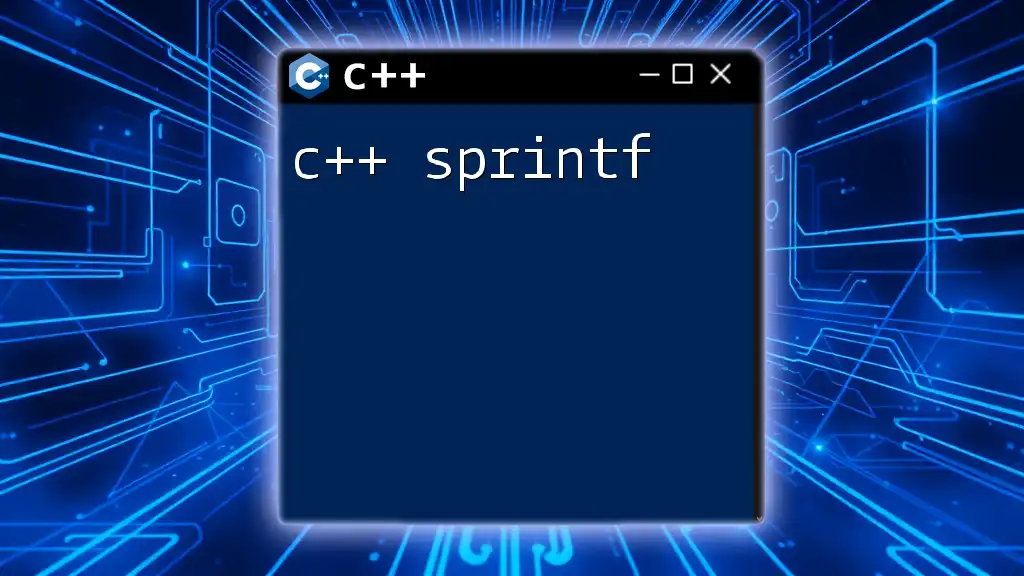In Spring 2023, leveraging C++ commands effectively can enhance your programming proficiency, as illustrated by the following simple code snippet that demonstrates a basic "Hello, World!" program:
#include <iostream>
int main() {
std::cout << "Hello, World!" << std::endl;
return 0;
}
Understanding C++ in 2023
What’s New in C++ This Spring?
As of Spring 2023, the C++ programming language continues to evolve, with crucial updates that enhance features and functionalities. While no new version has been officially published this spring, the C++ community has remained vibrant with discussions surrounding the upcoming C++23 standard, which introduces several proposed changes and improvements.
Developers can anticipate enhanced language support for concepts, improved support for constexpr, and several valuable library updates aimed at simplifying common tasks. Staying informed about these updates can significantly improve your coding efficiency and performance.
The Importance of Keeping Up-to-Date
In the ever-evolving world of programming, keeping abreast of updates is vital. Up-to-date knowledge allows developers to leverage the latest features, making code more efficient and readable. Notably, advancements in C++ can lead to better optimization strategies and improved resource management, facilitating smoother software development processes. Ignoring these advancements may result in outdated practices and missed opportunities for improvement.
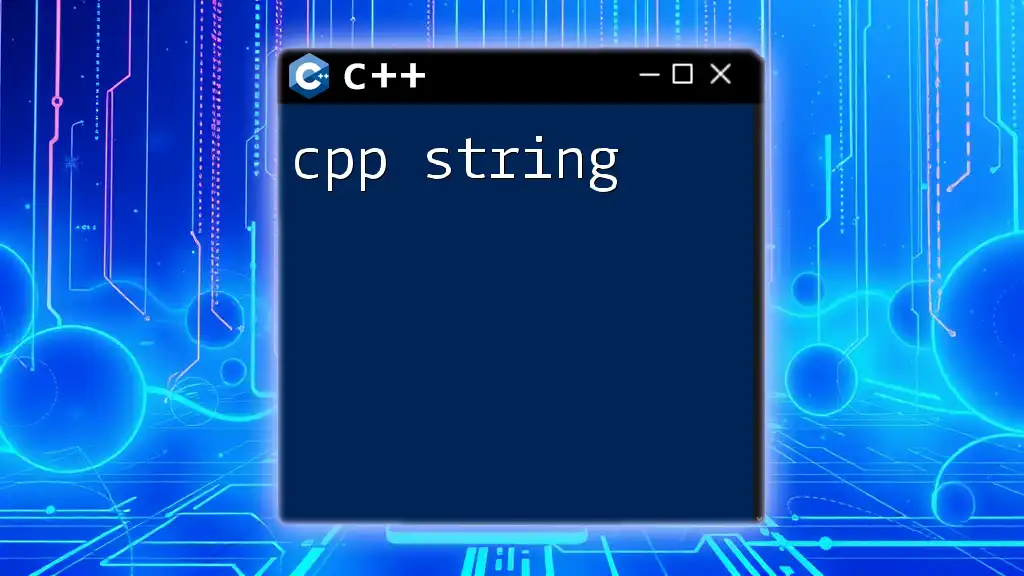
Essential C++ Commands: A Quick Reference
Basic Commands Overview
Understanding fundamental cpp commands is crucial for all levels of C++ developers. Let's take a look at some basic constructs that form the backbone of C++ programming.
Data Types and Variables
C++ offers a variety of data types that form the base for any program. Here are a few common data types along with their usage:
int age = 25; // Integer data type
double salary = 45000.75; // Floating point
char grade = 'A'; // Character type
In these examples, we see integers, floating-point numbers, and characters being defined, showcasing the diversity that C++ provides in handling data.
Operators and Control Structures
Arithmetic Operators
C++ allows the use of multiple arithmetic operators, making numerical computations straightforward. The common operators include `+`, `-`, `*`, `/`, and `%`.
Here’s a simple example demonstrating their usage:
int a = 10;
int b = 5;
int sum = a + b; // Addition
int difference = a - b; // Subtraction
int product = a * b; // Multiplication
int quotient = a / b; // Division
int remainder = a % b; // Modulo
These commands demonstrate not only basic arithmetic but also the essence of C++ being both a high-level and low-level programming language.
Control Flow
Control flow statements, such as if-else statements and switch cases, are vital for directing program execution based on conditions.
Here’s a practical usage of an if-else statement:
if (age >= 18) {
std::cout << "Adult" << std::endl;
} else {
std::cout << "Minor" << std::endl;
}
This construct serves to differentiate between age groups based on defined criteria. The flexibility of C++ allows developers to implement complex decision-making processes.
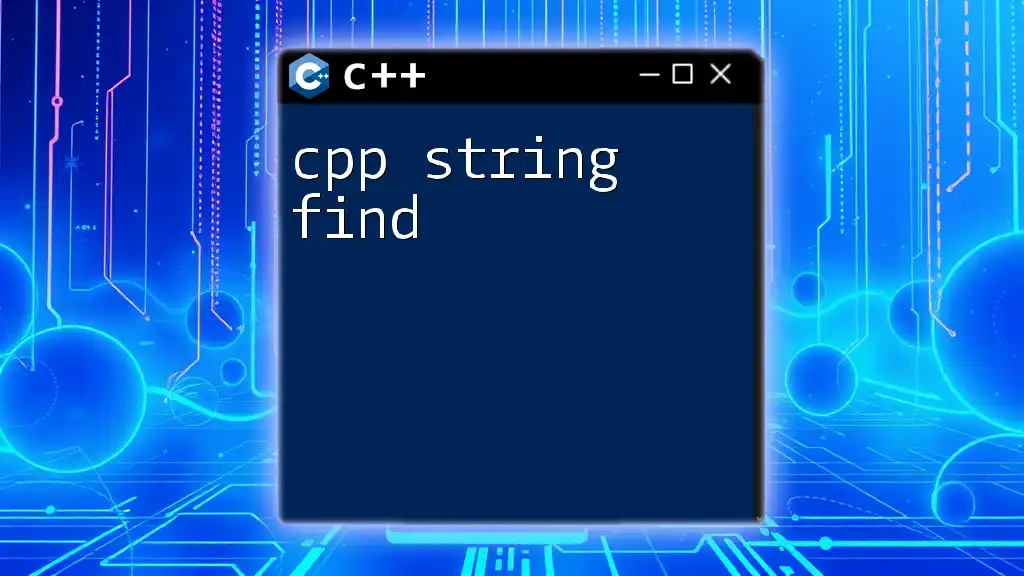
Advanced C++ Features in Spring 2023
Introduction to Modern C++
Lambda Expressions
C++ supports the use of lambda functions, which enable developers to create anonymous function objects with ease. They are particularly useful for situations that require a concise function definition.
Here’s a simple demonstration of a lambda function:
auto add = [](int x, int y) { return x + y; };
std::cout << add(5, 3) << std::endl; // Outputs: 8
This example signifies how lambda expressions can be incorporated for quick calculations without formally defining a function.
Smart Pointers
Smart pointers, introduced to handle dynamic memory more effectively, offer alternatives to traditional raw pointers. The primary smart pointer types include `unique_ptr`, `shared_ptr`, and `weak_ptr`.
std::unique_ptr<int> ptr(new int(5));
std::cout << *ptr << std::endl; // Outputs: 5
Using smart pointers not only mitigates memory leaks but also streamlines memory management practices in C++.
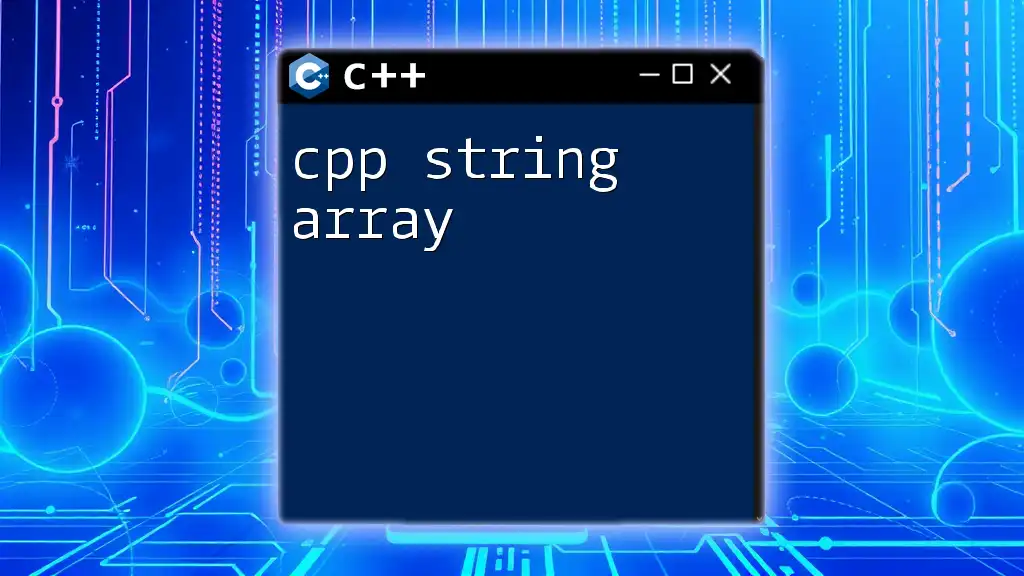
Performance Improvements in C++
Faster Compilation with C++20 Modules
The introduction of modules in C++20 aims to improve compile time and code organization. Modules can significantly reduce dependencies among files, enhancing build performance. By enabling the better encapsulation of code, developers can write more maintainable and scalable systems. The utilization of modules is a step towards modernizing C++ and reinforcing its relevance in contemporary software development.
Optimize Your Code with the Latest Standards
As the C++ standards evolve, so do optimization techniques. The enhancements in language features can lead to more efficient code execution. Utilizing constexpr in your programs allows computations to occur at compile-time rather than runtime, which can vastly improve performance. Here's a snippet demonstrating this concept:
constexpr int square(int x) {
return x * x;
}
Understanding and applying modern standards ensures that developers leverage the full capabilities of C++ efficiently.
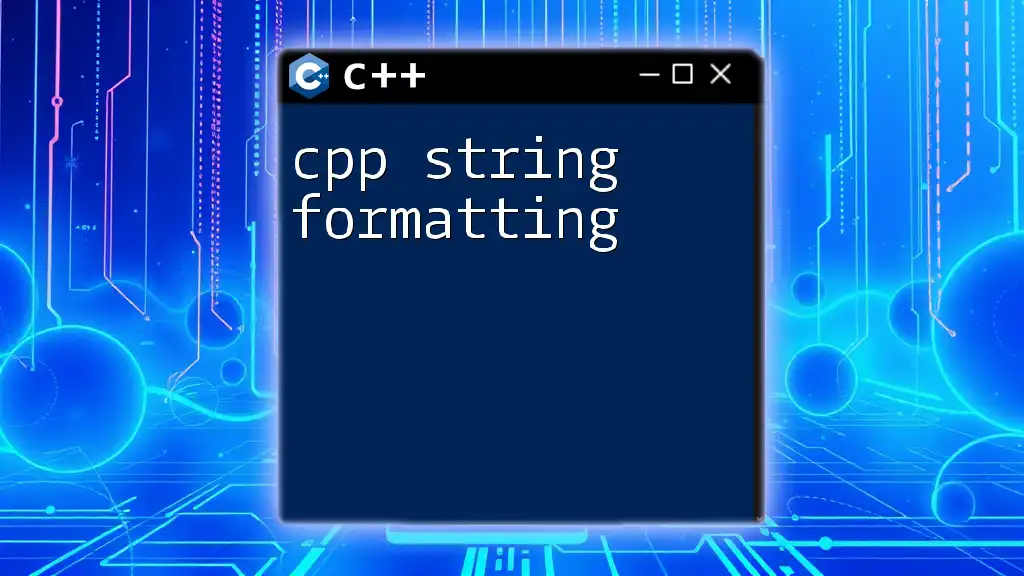
Practical Applications of C++ Commands
Real-World Use Cases
Game Development
C++ remains a preferred language for game development due to its high performance and control over system resources. Developers can implement efficient algorithms, handle graphics, and manage memory proficiently. Here's a simple snippet demonstrating a basic game loop:
while (gameIsRunning) {
updateGameLogic();
renderGraphics();
}
This basic loop encapsulates the heart of many games, with direct control over the frame rendering process.
Machine Learning and Data Science
C++ is making its mark in the fields of machine learning and data science through integration with libraries such as TensorFlow and PyTorch. Its speed allows for handling large datasets and performing complex calculations efficiently—the hallmark of data-driven applications.
Building a Basic Project in C++
Creating a basic C++ project involves setting up the necessary structure and using essential commands. To initiate a project, follow these steps:
-
Set up your IDE or text editor: Make sure you have a development environment ready for C++ development (like Visual Studio, Code::Blocks, or even a simple text editor).
-
Create a main.cpp file: This file will contain the entry point of your application.
-
Write basic code: Include headers and a simple main function to test your setup.
#include <iostream>
int main() {
std::cout << "Hello, C++ Spring 2023!" << std::endl;
return 0;
}
This foundational code serves as a stepping stone to more complex applications, allowing you to direct your learning path in C++.
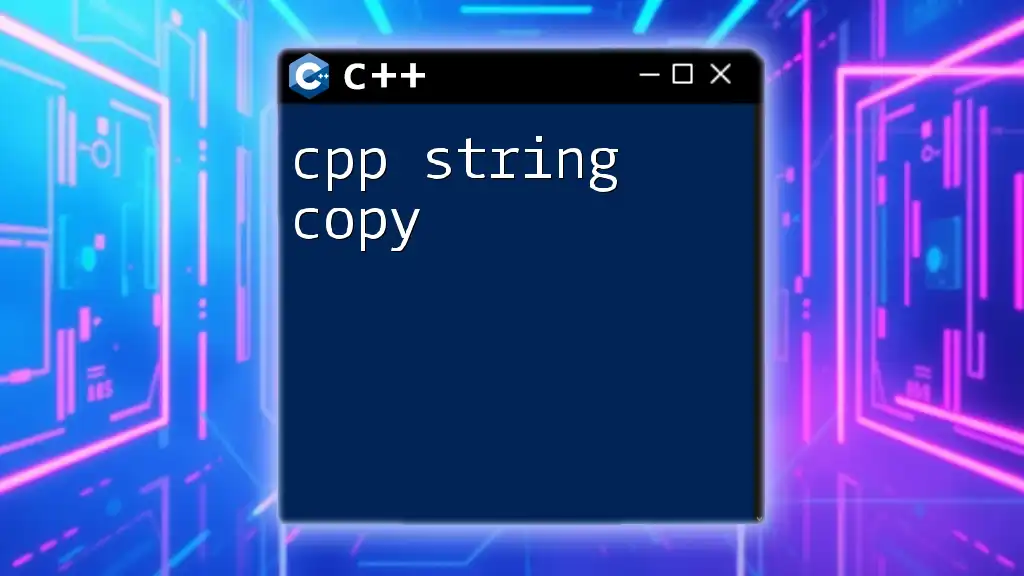
Resources for C++ 2023 Updates
Recommended Books and Online Courses
To stay updated and enhance your knowledge regarding cpp spring 2023, consider referring to these resources:
- Books on Modern C++ and specific textbooks relating to C++20 and C++23 standards.
- Online platforms like Coursera, Udemy, or edX offering courses tailored for both beginners and advanced users.
Forums and Community Involvement
Engage in forums such as Stack Overflow, Reddit, or dedicated C++ communities. Participating actively will help you stay in the loop with the latest discussions, tips, and troubleshooting techniques in C++ development.
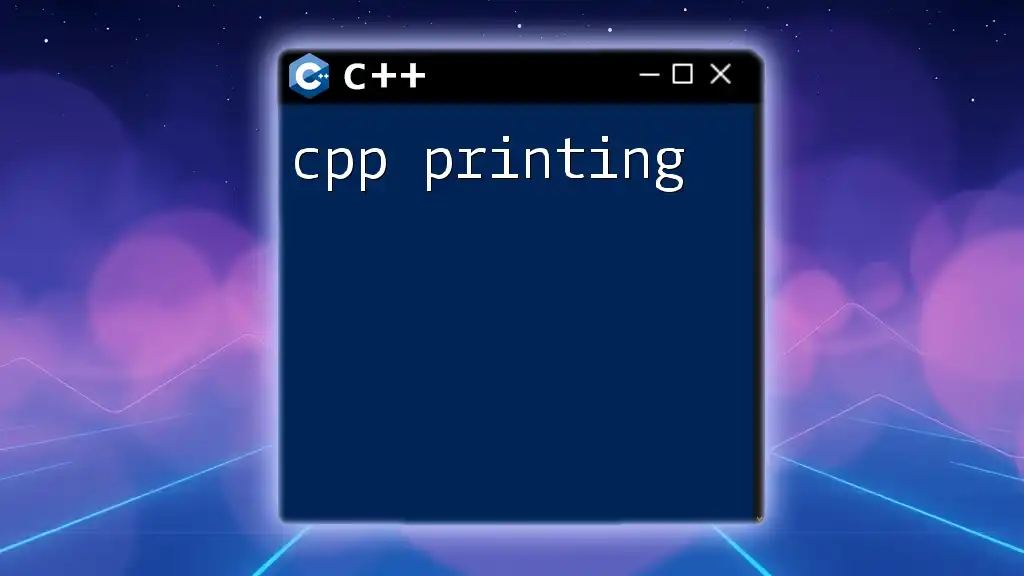
Conclusion
Staying aware of advancements and updates in C++ is indispensable for any developer looking to enhance their coding practices. As Spring 2023 progresses, embracing the changes and utilizing modern commands will pave the way for better software development experiences. With each update, C++ becomes not only more powerful but also more user-friendly, attracting a growing community of developers.
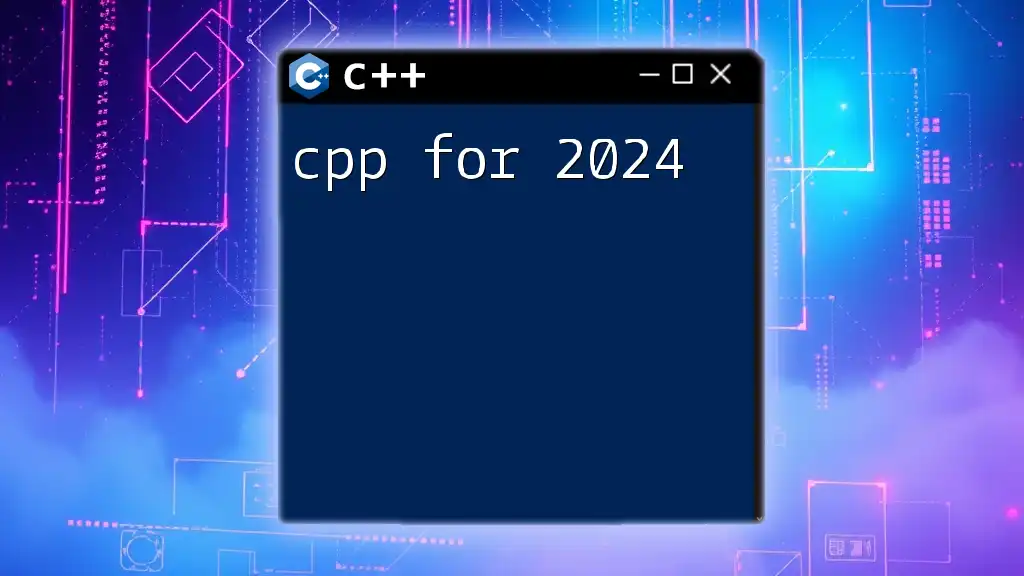
Call to Action
Subscribe to our updates for more tips and resources regarding C++ programming. Stay connected and follow our blog for the latest insights into cpp commands and industry news, ensuring you're always ahead in your C++ journey.

